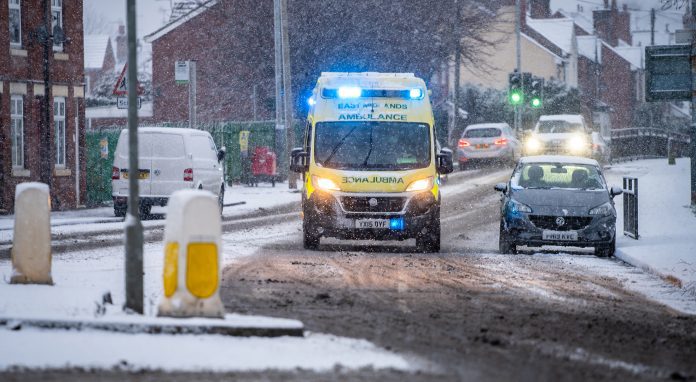
The NHS outlines extensive measures to combat pressures from COVID and flu in the winter season.
The NHS has announced that health chiefs will outline steps to boost the capacity and resilience of the health service, especially during the busy winter season. The plan will prepare local services for additional pressure by creating around 7,000 more beds through a mixture of new hospital beds, ‘virtual ward’ spaces and initiatives to improve patient flow over the winter season.
Other measures include recruiting more call handlers to deal with increased demand. NHS health chiefs aim to ensure at least 4,800 staff working in 111 and 2,500 in 999 call rooms to meet targets of answering calls within 10 seconds.
England’s top doctor said that the NHS was “taking every step possible” to ensure the NHS was prepared for any additional pressure in the winter season.
Additional measures for the winter season
Crucial planning is taking place to accommodate the autumn COVID-19 booster programme and the annual flu campaign. Alongside this, health chiefs are planning an extra £10m in funding for mental health services throughout the winter season to deal with the growing demand for the services. To support this, mental health professionals will be stationed in 999 call centres to ensure individuals facing a mental health crisis can get the appropriate support. GP services will be armoured with extra recruits of social prescribing link workers and health and wellbeing coaches to support patients with their needs.
Professor Sir Stephen Powis, NHS National Medical Director said: “Winter is always a busy period for the NHS, and this is the first winter where we are likely to see combined pressures from COVID and flu, so it is right that we prepare as early as we can for the additional demand that we know we will face.
“Staff are already under pressure with continued high demand for our services – with figures showing the busiest summer ever for NHS emergency departments, with 2.18 million A&E attendances and almost 900,000 999 calls answered in June, and in July the highest number of category 1 ambulance callouts since records began”.
“Ahead of the winter, we want to make sure we are doing everything we possibly can to free up capacity so that staff can ensure patients get the care they need – this includes timely discharge, working with social care, and better support in the community with the expansion of virtual wards.”
Record levels of demand for healthcare services
The latest NHS figures show that the NHS dealt with 85,397 category one ambulance callouts – the higher number since the records began and almost two-thirds higher than in July 2020.
This number is also a third higher than pre-pandemic, with 23,610 more of the most serious incidents than in July 2019.
On top of dealing with growing levels of emergency service demand, hospitals continue to treat COVID-19 patients, with over 8,300 patients still in the hospital.
Health and Social Care Secretary Steve Barclay said: “To prepare for what could be a challenging winter season, I am working closely with the NHS at pace to ensure we are ready for the pressures ahead. By increasing capacity, boosting NHS 111 and 999 support, tackling delayed discharge and using new innovations such as virtual wards, we can help patients get the care they need when they need it.
“Alongside this, I have launched a task force to drive up the recruitment of international staff into critical roles across the system, while we recruit and retain more doctors and nurses, so we can continue our work of busting the COVID backlogs, having now virtually eliminated waits of over two years as part of our Elective Recovery Plan – backed by record investment”.

























